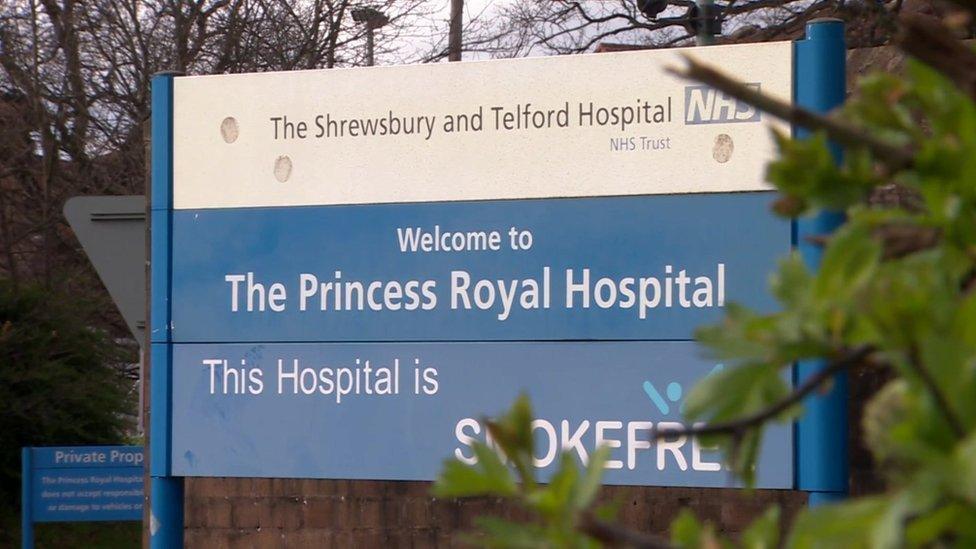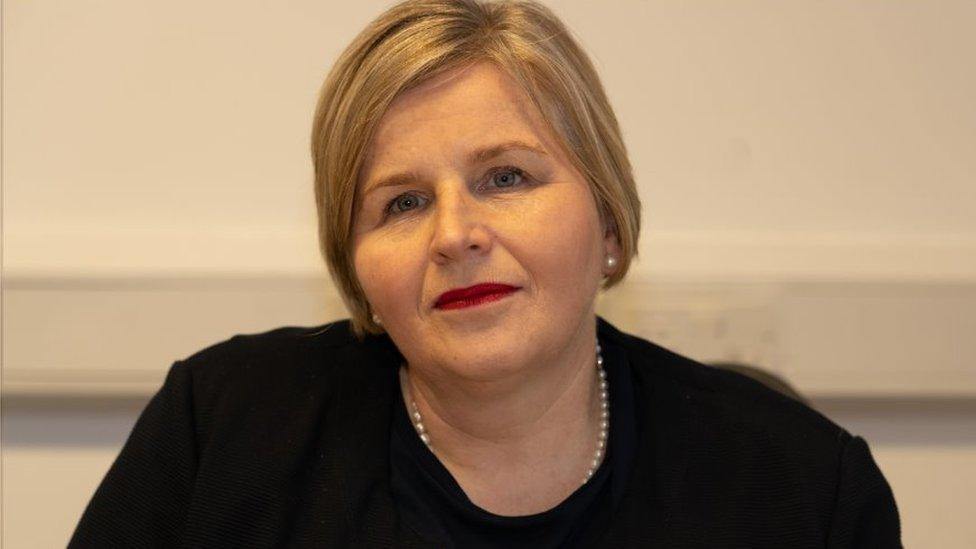Shropshire maternity care inquiry could include 1,200 cases
- Published

Shrewsbury and Telford Hospital NHS Trust was placed in special measures in November 2018
The UK's largest inquiry into poor maternity care has revealed it is now looking at nearly 1,200 cases.
An investigation into avoidable harm to mothers and babies at Shrewsbury and Telford NHS trust was launched in 2017.
A leaked report last year suggested dozens of babies had died unnecessarily.
The chairwoman of the inquiry has urged any more families who wish to have their care considered to make contact by the end of next month.
The investigation was initially set up to look into the care received by 23 families.
But it has repeatedly expanded as more families have raised concerns.
Inquiry chairwoman, maternity expert Donna Ockenden, now says they have been informed of 1,170 cases.
The total includes more than 300 families whose details were passed to the inquiry by the trust itself, after they examined their own records and found instances of maternity problems.

Donna Ockenden is conducting a review into maternity failings at the trust
Ms Ockenden has written to those families, asking if they wish to have the care they received assessed by her team.
"Throughout the autumn and winter of 2018, the trust, supported by NHS Improvement, undertook its own review of maternity care, where records existed, from the year 2007 to the end of 2018," Ms Ockenden said.
"This led to the identification of just over 330 families who at that time were not known to my maternity review team.
"I am now writing to those families to ask them if they would like to be included in the review."
Another 70 families who came forward to the trust after hearing media reports about the review, or who had launched independent legal action, have also received letters this week asking for their explicit consent to be included.
While some of the instances of poor care go as far back as 1979, it is understood the vast majority of cases relate to maternity services at the trust since 1998.
A draft of an earlier report leaked to the Independent newspaper, external found a "toxic" culture at the trust had contributed to the deaths of 42 babies and three mothers over several decades.
The final report is due to be published next year, but the inquiry team has set a deadline of the end of May 2020 for any additional families to get in touch.
"I am making one last appeal to any family yet to get in touch to please do so by May 2020," said Ms Ockenden.
"We have to give ourselves the time to write the report and ensure it does justice to the testimony we have heard from families."